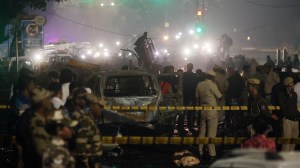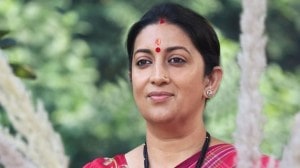An occasion for DU to showcase
NEW DELHI, AUGUST 17: When Bhanu Sachdeva, Manavjit Singh and Narender Singh walk up to the Ashoka Hall dias to receive the Arjuna Award ...

NEW DELHI, AUGUST 17: When Bhanu Sachdeva, Manavjit Singh and Narender Singh walk up to the Ashoka Hall dias to receive the Arjuna Award from President K.R. Narayanan on September 1, the occasion would be etched for ever in the memory of the three sportspersons. Personal glory apart, the event will go into the annals of Delhi University sports as the first of its kind.
At a time when DU’s performacne has been dipping so low, this rare honour from its alumni Bhanu Sachdeva (SRCC), Manavjit Singh (Sri Venkateshwara) and Narender Singh (Satyawati Evening) should act as a catalyst and work wonders to the mundane Sports Council officialdom that is refusing to grow. But more about it later.
Now, it is time to showcase the achievements of the athletes who, over the years, have toiled it all to excel in their respective disciplines.
“I did not expect the award so soon,” was the initial reaction of Bhanu Sachdeva when contacted at his Jhandewalan residence. The specialist backstroke swimmer and a former student from Army Public School and SRCC had been out of action for more than a year owing to a knee injury. “It’s only of late that I have started visiting the Talkatora pool. But I am yet to take part in a competition,” he said.
However, Bhanu expressed his happiness over the award and said it would inspire him “to get back into the pool and win medals for the country once again.” A product of SAI coach Satish Suri since 1987, Sachdeva established himself as a backstroke specialist although he was equally good in freestyle and butterfly. He won several medals for the country and participated in major competitions, including the Pan-Pacific age group meet, the SAF Swimming championships and the SAF Games.
Sachdeva considers his performance in the World University Games in Japan where he finished 16th as his best. “The best swimmers of the world were participating in that meet,” he recalled. Among his several outstanding performances were the two silver medals in the seventh Asia-Pacific meet in Hong Kong, where he created a meet record in 100m backstroke. In the sixth SAF Games in Dhaka, he missed his own record by a whisker in 200m back event. He also claimed five gold, one silver and a bronze in the Ali Fjar international meet at Tehran.
On the national circuit, he still holds records by the dozen at various levels. His timing of 2:12.66 in 200m back, set at the 1995 Calcutta Nationals is still intact. At the National School Games, he went on sinking marks (senior boys 100m and 200m backstroke; junior boys 100m, 200m backstroke; and under-14, 200m backstroke) and at the National Games (Pune) he established a record in his favourite 200m backstroke event.
In Delhi state meets, Sachdeva’s records in sub-junior, junior and senior boys sections are yet to take a beating. In inter-pool competitions, too, his name is etched in the record books in men (100m back). His achievements at inter-varsity and inter-school competitions need no further elaboration. The last time a Delhi swimmer got the award was in 1984 when Khajan Singh (Police) — a lone bronze in Asian Games so far — was honoured.
“I feel doubly honoured to be bracketed with such a great swimmer. Khajan was my idol during my school and college days,” Sachdeva recalled with pride. Now he is determined to make a quick comeback and win more medals for the country.
Although Manavjit belongs to Punjab, he graduated from Sri Venkateshwara College in the south campus. Manavjit, teaming up with Zoravar Singh (another DU colleague) and Mansher Singh, claimed the trap silver in last year’s Asian Games at Bangkok. Kuwait had won the gold. Manavjit and Mansher had earlier won gold in trap pairs event in the Commonwealth Games at Kuala Lumpur.
Narender Singh graduated from DU in 1991-92 and is an inspector with Punjab Police now. He had represented the country in judo in two Olympics (Barcelona and Atlanta) and two Asian Games (Seoul and Hiroshima). He had claimed a gold in the third South Asian Judo championship in New Delhi in 1989 and was placed third in the 14th Commonwealth Games in Auckland in 1990. He had been a national champion in his event for several years and to this date has very little opposition in his category. He started his career as a wrestler and then switched over to judo.






- 01
- 02
- 03
- 04
- 05

























